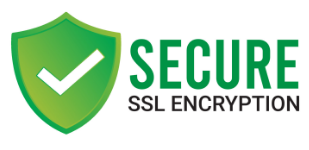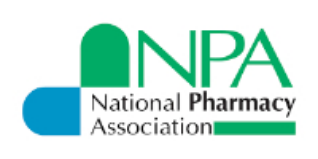-
NHS
-
Oldham Services
-
Shop
-
Help & Advice
-
Cystic acne is a severe form of acne that is more than just a skin issue. For people who suffer from it, cystic acne often affects their confidence and well-being. This is why it’s important to understand what cystic acne looks like, how to treat cystic acne effectively, as catching these signs early and starting treatment can help reduce the impact of cystic acne.
Cystic acne is the most severe type of inflammatory acne, causing large, painful cysts under the skin on the face, chest, back or shoulders. These cysts can be red, swollen, and filled with pus, often leaving scars and taking weeks to heal.
What Causes Cystic Acne?
Understanding why cystic acne occurs is important to know how to manage it. Several factors contribute to its development, from hormonal changes to genetic predispositions. By identifying these causes, you can take proactive steps in your skincare routine and type of treatment to minimise cystic acne breakouts.
Hormones play a significant role in cystic acne. Androgens, hormones that increase during puberty, can cause oil glands to enlarge and produce more sebum (oil). This combination of excess oil, dead skin cells, and bacteria on the skin clogs pores, leading to acne. Women might notice flare-ups during menstrual cycles, pregnancy, and menopause, or older adults with hormonal imbalances can suffer as well.
Your genes can influence your likelihood of developing cystic acne. If your parents had severe acne, you’re more likely to experience it, too. This genetic predisposition doesn’t mean cystic acne is inevitable, but it does mean you should be more vigilant with your skin care.
Pollution and humidity can also aggravate cystic acne. Pollutants can clog pores, while high humidity can increase sweat and oil production, leading to breakouts.
Topical treatments are the foundation in the management of cystic acne. Both over-the-counter (OTC) and prescription options are available, offering different approaches to target acne. To effectively combat cystic acne, various gels and creams can be employed, each designed to target specific aspects of this skin condition.
When topical treatments are not enough, oral antibiotics can be a powerful tool in the fight against cystic acne. Lymecycline and Doxycycline work similarly to target the bacteria that contribute to acne development.
Doxycycline, a tetracycline antibiotic, is commonly used to treat various bacterial infections, including acne. It halts bacteria growth, aiding in clearing infections. In acne treatment, its anti-inflammatory qualities reduce bacteria linked to cystic acne. This makes it a go-to option when other treatments haven’t succeeded.
Doxycycline’s ability to diminish redness and swelling in acne blocks bacteria from producing essential proteins, disrupting their growth and helping to clear and prevent acne outbreaks. The antibiotic’s deep skin penetration makes it a strong choice for severe, painful acne cases where topical treatments fall short.
Lymecycline combats the bacteria, oil production and skin cell turnover that exacerbate acne, reducing inflammation and infection with fewer breakouts. Not only does lymecycline tackle existing acne, but it also helps prevent new outbreaks by managing bacterial growth.
This antibiotic is beneficial for individuals who haven’t seen results from topical treatments offering a systemic solution, as it treats skin issues in various areas, including the face, back and shoulder acne, which reduces the intensity and frequency of acne episodes. Lymecycline’s impact is more than skin deep; it works internally to improve skin clarity.
A combined treatment plan often yields the best results in managing cystic acne. Combining topical treatments with oral medication can significantly enhance effectiveness, simultaneously targeting different acne aspects.
Combining topical treatments like benzoyl peroxide, adapalene (Differin), or azelaic acid (Skinoren) with oral antibiotics such as Doxycycline or Lymecycline can be more effective than using either treatment alone:
| Medication Name | Aknemycin | Differin | Acnecide | Duac | Zineryt | Skinoren | Finacea Gel | Epiduo | Tetralysal | Doxycyline |
| Active Ingredients | 40 mg of erythromycin and 0.25 mg of tretinoin | Adapalene 0.1% w/w | Benzoyl Peroxide 5% w/w | 10 mg clindamycin phosphate 50 mg benzoyl peroxide | 40 mg/ml erythromycin and 12 mg/ml zinc | 20% azelaic acid. | 15% azelaic acid. | adapalene 3 mg benzoyl peroxide 25 mg | Lymecycline | Doxycycline |
| Key Benefit | Contains antibiotic | Anti-inflammatory properties | 1st step treatment Kills 95% bacteria | Dual action – contains an antibiotic | Can be easily applied to large areas | Has antimicrobial action | Can also treat acne and rosacea | Combination product with antimicrobial and anti-inflammatory activity | For wide spread or severe acne 12 week course | For wide spread acne 12 week course |
| Type of medication | Solution | Cream Gel | Cream | Gel | Solution | Cream | Gel | Gel | Oral Capsules | Oral Capsules |
| Dosages available | 40mg/0.25mg | 0.1% | 5% | 3% 5% | 40mg/12mg | 20% | 15% | 0.3% / 2.5% 0.1% / 2.5% | 300mg | 100mg |
| Do you need a prescription? | Yes | Yes | No | Yes | Yes | Yes | Yes | Yes | Yes | Yes |
| When or how should it be used | Apply to affected areas once or twice daily | Apply to affected areas at night | Apply thin layer once or twice daily | Apply once a day in the evening | Apply twice daily for 10 -12 weeks | Apply morning and night. Rub in gently | Apply morning and night. Rub in gently | Apply once in evening | One capsule a day | One capsule a day |
| Common side effects | Dry skin Redness Peeling Burning sensation Itching | Dry skin Redness Peeling Burning sensation Itching | Dry skin Redness Peeling Burning sensation Itching | Dry skin Redness Peeling Burning sensation Itching | Dry skin Redness Peeling Burning sensation Itching | Dry skin Redness Peeling Burning sensation Itching | Dry skin Redness Peeling Burning sensation Itching | Dry skin Redness Peeling Burning sensation Itching | Feeling sick Abdominal Pain Diarrhoea | Headaches Rashes Upset stomach |
Adopting specific lifestyle changes can be a powerful way to manage cystic acne. While medications and treatments are essential, daily habits also affect skin health. Small, consistent changes can make a significant difference.
While the link between diet and acne is still a subject of research, certain foods exacerbate acne in some people. Foods high in sugars and dairy products have been linked to acne in some people. A diet rich in fruits, vegetables, whole grains, and lean proteins can promote healthier skin. Hydration is also key; drinking plenty of water helps keep your skin hydrated and may reduce oil production.
Regular exercise benefits your skin and overall health by improving blood circulation, which can help nourish skin cells. Exercise also helps reduce stress, which can exacerbate acne. Remember to cleanse your skin after sweating to prevent clogged pores.
Stress is another factor that can impact acne flares. It doesn’t directly cause acne, but it can worsen it. Stress increases cortisol levels, stimulating oil glands and leading to breakouts. Since stress can trigger or worsen acne, using techniques to manage this, like yoga, meditation, and deep breathing exercises, can reduce stress levels. Getting enough sleep and engaging in hobbies you enjoy can also help keep stress at bay.
A consistent skincare routine for clear skin is essential. Washing your face and using a cleanser helps remove excess oil and dirt, especially after sweating. However, avoid harsh scrubs or over-washing, which can irritate your skin and worsen acne. You should look for non-comedogenic products as these won’t clog your pores.
Protecting your skin from the sun is important, especially if using acne treatments that make your skin more sensitive to sunlight. Use a broad-spectrum sunscreen with at least SPF 30. Sun damage can worsen acne scars and hinder the healing process.
At Click2Pharmacy, we understand the challenges of dealing with cystic acne. That’s why our dedicated acne treatment clinic provides solutions for your skin care needs. We offer an easy and convenient way to access acne treatments where you can explore a range of options, from topical creams and gels to oral medications, and easily buy cystic acne treatment online. By filling out our free consultation form, you can receive personalised advice tailored to your skin condition. Our pharmacists are dedicated to helping you achieve the best possible results.
Take the first step towards clearer skin, and contact us today. Let us help you regain your confidence and achieve healthier, clearer skin.

